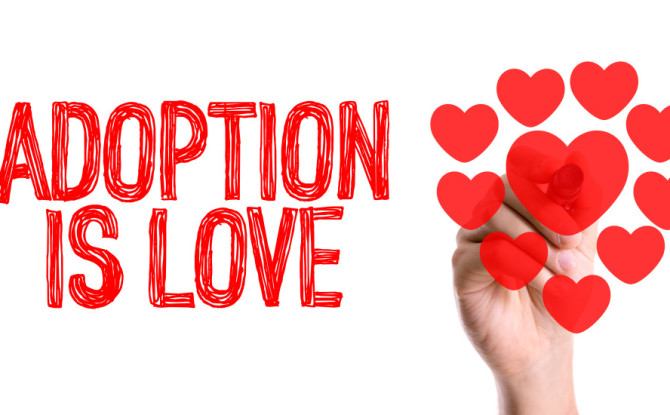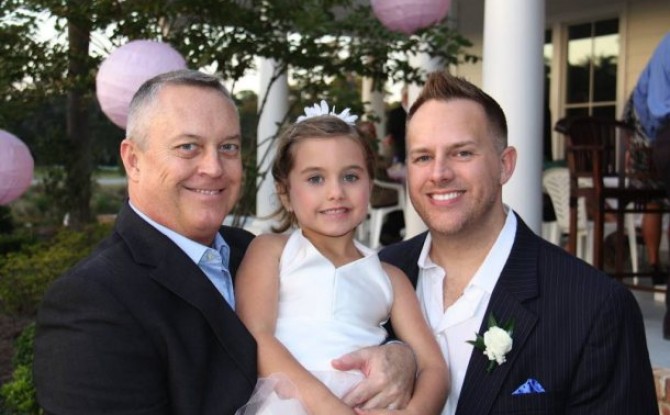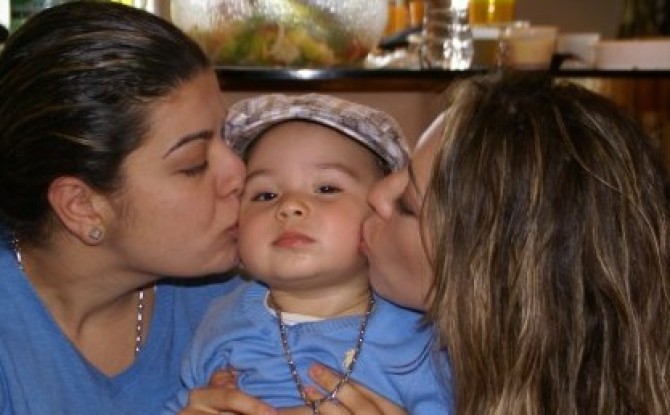Do I have to go through a Step Parent Adoption if I am married?
I get this question more than any other; marriage equality was a long fought battle and a much celebrated victory for gay and lesbian couples across the country. Now that it is the law of the land, many people mistakenly believe that their marriage alone will secure their family without the need for a step parent adoption, sometimes called a second parent adoption or two parent adoption. Unfortunately family law has not caught up to the realities of how we create our modern families.
For both gay and lesbian couples, securing the legal rights of a non-biological parent is crucial to create the kind of emotional, and legal, security that most other families take for granted. The legality of both parents relationship to their child is often assumed. Parents are parents, regardless of the biological connection to your child. In New York State, the law doesn’t agree.
Married lesbian couples in many states, New York included, can list a non-biological mother name as a parent on a child’s birth certificate if they are married at the time of the birth of the child and they use an anonymous sperm donor. While a name on a birth certificate is an important goal, it in itself does not create a legal relationship.
In New York County, Surrogate Judge Kristin Booth Glen, in a case entitled In the Matter of Sebastian, discusses the issue of establishing parental rights for a non-biological parent specifically. The case involves married lesbian couple who used an anonymous sperm donor to have a child. Glen concludes, when discussing the non-biological mother’s relationship with the child that, “the only remedy available here that would accord the parties full and unassailable protection is a second-parent adoption pursuant to New York Domestic Relations Law (“DRL”) § 111 et seq.” Glen further states, “that a judicial order of adoption in one state must be afforded full faith and credit in every state, and that there can be no “public Policy” exception to that mandatory recognition…”.
Marriage equality alone doesn’t secure a family without the need for a step parent adoption!
While it is true that many states have what is called a “martial presumption of parentage,” the truth about this is that it is applied differently in different states. For instance, in New York State, where I practice, there is specific case law that holds that the marital presumption of parentage does not apply to same-sex couples. That case is called “Matter of Paczkowski v. Paczkowski.” In that case, the appellate division of the Second Department of New York, the state’s intermediate appellate court, held that the “presumption of legitimacy… is one of a biological relationship, not a legal status.”
In essence, the court says that a marriage does not create a legal right between a non-biological parent and a child. While it may be an indication of intent to be a parent, as would a non-biological parent’s name on a birth certificate, the only way to actually create the legal relationship that guarantees the security that all same-sex families need, is through an adoption order, and in some states, a parentage order. Unfortunately, New York currently does not have the capacity to issue a parentage order but there is legislation in committee in Albany that may change that.

Surrogate Options & Known Donors Complicate the Legalities of Chosen Families
One further compounding variable is that many lesbian couples are now choosing known sperm donors. While the desire for a child to know their biological heritage and have a father figure makes sense to many couples, adding another potential parent into the mix can create problems if an adoption does not take place to terminate the donor’s rights to the child and create the intended, non-biological parent’s rights to their child.
For male couples who want to have biologically related children, surrogacy is the only real option. Surrogacy is an emotionally, and financially, exhausting process. It is a true leap of faith. Couples considering surrogacy must juggle a myriad of concerns, the least of which being the cost. With gestational surrogacy tabs running as high as $180,000.00, budgeting is a must. Lawyer’s fees are often lumped together in surrogacy accounting statements, and some agencies do not include the cost of a second parent adoption in order to keep the numbers low. Often, the cost of a pre-birth order is less than a second parent adoption.
In some cases, depending on where your surrogate mother gives birth, her name may be removed from the child’s original birth certificate by a proceeding called a pre-birth order. Some states do not provide for pre-birth orders. Those that do may or may not replace the surrogate’s name with that of the non-biological intended parent. California, for instance, does offer the ability to include the non-biological parent’s name on the child’s original birth certificate, and that very significant step is often mistakenly viewed as a replacement for a second parent adoption or a step parent adoption, which is the only definitive way to establish parental rights between a non-biological parent and a child born through surrogacy.
In order to understand why a step parent adoption is vital if you have a pre or post-birth (or parentage) order, you must understand what that order is, and what protections it provides. Pre and post-birth orders are court orders that are obtained by filing a petition in the appropriate court in the state in which the child will be born. Often, these petitions are not filed in the county where the carrier lives, but in a county which has a judge who understands the importance of these orders and grants them upon the motion of an attorney representing the intended parents. This in itself may create a problem.
Some states may not recognize the relationship created by the pre-birth order because of the lack of a full judicial process attendant to a parentage order. For an issue to be precluded from challenge, for instance the issue of a non-biological parent’s relationship to a child born through surrogacy, the court looks at the process by which that issue has been established. The reason why adoption orders from one state are valid in every state, regardless of the gender of the parents, is because the judicial process of the adoption. The state, for all intents and purposes, becomes and “adversary” to the adoptive parents in the adoption process. The state performs background checks, it orders that fingerprints be taken, mandates that a home study is performed by a licensed social worker to ensure that the child’s prospective residence is safe and clean and essentially verifies all adoption requirements submitted by the petitioning parent, or parents. The adoption order is the product of a fully litigated judicial process. Because this rigorous process is not part of a parentage order proceeding, states which do not offer such orders may not recognize a relationship created in one.
Furthermore, some courts, through a parentage order, will add the name of the non-biological parent to the original birth certificate if that person is married to the biological parent. For same-sex couples, this can present an issue, particularly if the non-biological parent’s relationship to the child is being challenged in a state that resists same-sex marriage. These situations usually arise upon the dissolution of a relationship and during the custody/visitation/support aspect of that process.
Protecting our families may seem like navigating a ship through a sea of legal, financial and emotional waters. But what is more important than the security of knowing that every child has a legal relationship with their parents that cannot be challenged for whatever reason. Every parent deserves that security as well.
Anthony M. Brown, Esq. currently is an associate with the law firm of Albert W. Chianese & Associates heading their Nontraditional Family and Estates Law division serving unmarried individuals, couples and families in Manhattan and on Long Island. Anthony is the founder of TimeForFamilies.com, a web environment dedicated to assisting gay and lesbian couples create their own families. Anthony is the Board Chairman of Men Having Babies, a non-profit organization created to assist gay men looking create families through surrogate options and is a legal consultant for Family By Design, a co-parenting information and matching website.
by Anthony M. Brown – September 16, 2015













